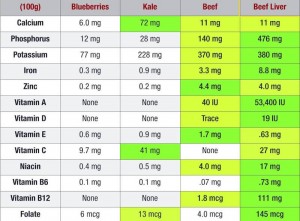
Patients who have gut problems like irritable bowel syndrome (IBS), constipation, diarrhea, or heartburn/reflux often find eating vegetables can make their symptoms worse. Does this describe you? Find out how you can tolerate vegetables better with proper preparation.
Most vegetables (and some fruit) contain a high amount of insoluble fiber. Insoluble fiber is the hard chewy part of the vegetables humans can’t digest. Although insoluble fiber is healthy for your gut, if you have an inflamed gut, eating vegetables high in insoluble fiber, as one my mentors says, can be like rubbing wire on an open wound. Here are some vegetables high in insoluble fiber:
- green leafy vegetables
- leeks
- garlic
- cucumbers
- bok choy
- celery
- eggplant
- bell peppers
- green beans
- sugar snap peas and whole peas
- cabbage
- brussel sprouts
- cauliflower
- broccoli
- kernel corn
Vegetables that are higher in soluble fiber and lower in insoluble fiber tend be easier on the gut. Soluble fiber is softer than insoluble fiber and dissolves in water. It’s also more readily fermented by your good bacteria (prebiotic). Here are some vegetables higher in soluble fiber and lower in insoluble fiber:
- starchy tubers (potatoes, sweet potatoes, yams)
- winter squash
- summer squash
- carrots
- rutabaga
- turnips
- parsnips
- yuca or cassava root
- taro or dasheen
- beets
- plantains (fruit)
Tip #1
Eat vegetables higher in soluble fiber
This doesn’t mean you can’t eat a variety of vegetables higher in insoluble fiber, you just want to limit them for each meal. For example, instead of having a stir fry with six vegetables, have just one roasted or steamed vegetable on your plate. Here are some tips on how to prepare vegetables high in insoluble fiber so you can tolerate them better:
- Don’t eat insoluble fibres on an empty stomach. Eat vegetables high in insoluble fiber with other foods higher in soluble fiber.
- Sauté, roast, or steam insoluble fibers to soften them up.
- Remove the stems and peels (broccoli, cauliflower, squashes) from veggies (and fruits) high in insoluble fiber.
- Dice, grate, mash, or blend vegetables high in insoluble fiber. This is especially true if you eat you vegetables raw.
Tip #2
Prepare and eat vegetables high in insoluble fibers ONE AT A TIME by dicing, grating, mashing, sautéing, steaming, or roasting, and never eat alone on an empty stomach.
Consuming fermented vegetables is another way to prep vegetables to tolerate them better. Fermented vegetables like sauerkraut, kimchi, sauerruben (fermented turnips), and curtido, are already pre-digested by bacteria and most people can tolerate them. When cabbage in sauerkraut and kimchi is fermented, the sugars and sugar alcohols are removed. This helps people who have problems eating FODMAPs tolerate them. FODMAPs stands for Fermentable Oligosaccharides, Disaccharides, Monosaccharides And Polyols. They are foods containing sugars and sugar alcohols that people with Irritable Bowel Syndrome have a tough time consuming because of the gas, bloating, and diarrhea they can cause. Furthermore, fermented vegetables are a great source of probiotics which help heal the gut.
You can either buy or make fermented vegetables. Make sure if you buy sauerkraut, for example, that it is raw. The sauerkraut you purchase in the condiment section of the grocery store is pasteurized and does not have the same benefits.
Tip #3
Eat more fermented vegetables like raw sauerkraut and kimchi.
Some of you might be thinking you are losing out on the important nutrients vegetables provide your body. While it’s true plants are high in certain nutrients, animal products like meat, organ meat, fish, eggs and dairy are just as high and often higher in nutrients than plants. As well, humans can more easily extract these nutrients from animal products versus plant products. The chart below compares the micronutrients found in beef and beef liver compared to kale and blueberries. Kale and blueberries are plant foods known for their high nutrient density.

Furthermore, our Paleolithic ancestors didn’t have access to a wide variety of vegetables all year round. They ate what was in season. They, as well as modern day hunters and gatherers, are also considered to be more robust, lean, and fit than modern industrialized humans.
Tip #4
Eat free-range, organic, and wild animal products to attain the nutrients you aren’t getting when limiting your vegetable intake.
Summary and recommendations
There is no disputing that eating vegetables are important for your health. While you are sorting out how to fix your gut problems you may have to limit them, learn how to prepare them so you can tolerate them, and substitute animal products to attain the vital nutrients you need to get well and stay well.


Hi, I appreciate this article . It had helped me so much. Thanks
You’re most welcome.
Dr. Collins